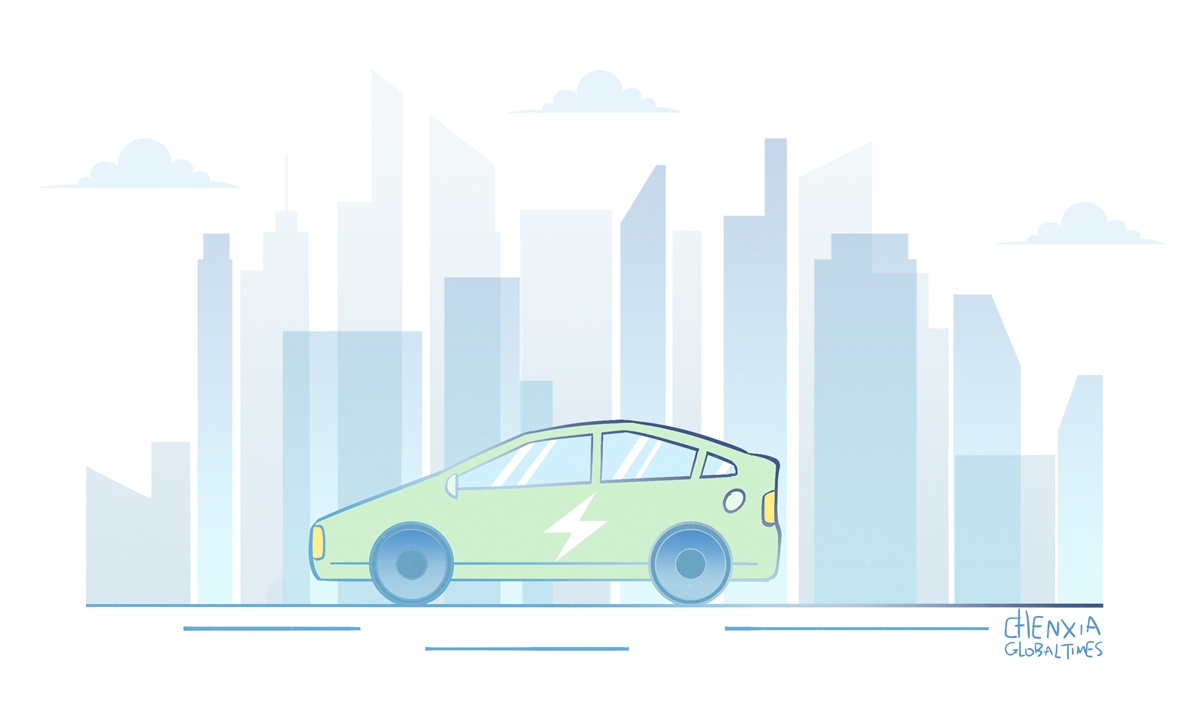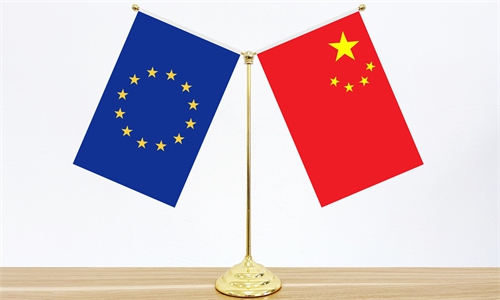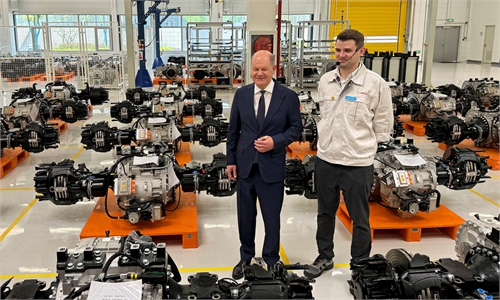
Illustration: Chen Xia/Global Times
Although some Westerners want to pin the label of "overcapacity" on China's electric vehicles (EVs), cooperation on autonomous and connected driving between China and Germany, major exporters of cars, has been advancing. The joint efforts are likely to have a far-reaching impact across the global EV market.Chinese Minister of Industry and Information Technology Jin Zhuanglong met with Germany's Transport Minister Volker Wissing on Tuesday in Beijing, during which both sides held in-depth exchanges of views on cooperation in the fields of industrial digitization and intelligent connected vehicles. Jin said that China is willing to work with Germany to strengthen practical cooperation in fields such as automobiles and harmonizing industrial standards.
During German Chancellor Olaf Scholz's visit to China, the two countries signed a cooperation document involving autonomous and connected driving, which some Western observers said would help enable carmakers to transfer data from China to Germany.
Benign cooperation between China and Germany offers a good example and inspiration to other participants in the global market. In sharp contrast to this cooperation, the US uses so-called data security as an excuse to suppress China's auto industries.
The US announced in February it would launch an investigation into so-called "security threats" posed by connected vehicles that utilize technology from "countries of concern" such as China. US President Joe Biden was quoted by the VOA as saying that connected vehicles from China could collect sensitive data about US citizens and infrastructure and send this data back to China. These accusations are baseless.
The world is on the cusp of a transportation revolution, with the EV industry leading the charge. The rapid rise of digital technology has fundamentally changed the world. An inevitable result is connected vehicles, which can be seen as a combination of EVs and digital technologies. This is an emerging industry. There is no need to deny that the collection, storage and cross-border transmission of data generated by connected vehicles are sensitive issues.
According to Reuters, self-driving cars collect masses of data both on passenger and driver behavior, and on the car's surroundings via lidars and sensors.
Countries around the world should properly handle issues related to data transmission. Otherwise, disputes arising from them may affect the development of the entire industry. The best way to resolve disputes and differences is not to politicize economic issues, but to address them through friendly consultation and negotiation by the countries directly concerned.
The development of the industry is in its early stages, so it is normal to see different countries have different laws, because each country has the right to pass new laws based on its actual economic interests. What is needed today is to strengthen dialogue and coordination, harmonize industrial standards among different countries and further strengthen mutually beneficial cooperation.
Cooperation on autonomous and connected driving between China and Germany is likely to be a good starting point in further deepening collaboration and cooperation.
Last year was a tipping point for the autonomous vehicle industry. The development of relevant standards for private passenger vehicles is still in motion. There is still much to be done before the autonomous vehicle industry is fully mature. People should push the process forward, not hinder it.
Citing potential "national security" risks, the US probe against Chinese connected vehicles may lead to new regulations that disrupt the global supply chain. The investigation shows that the strong rise of China's EV industry has brought anxiety to the US.
If Washington wants fair competition, it would be better to join the negotiations and strengthen communication and coordination with countries including China to promote the industry's development.
The author is a reporter with the Global Times. bizopinion@globaltimes.com.cn



